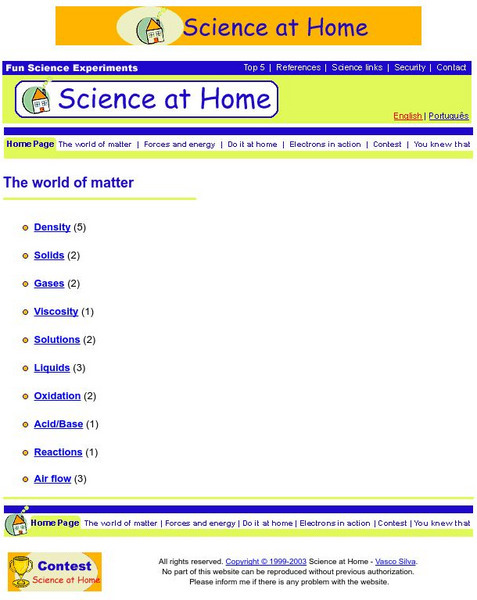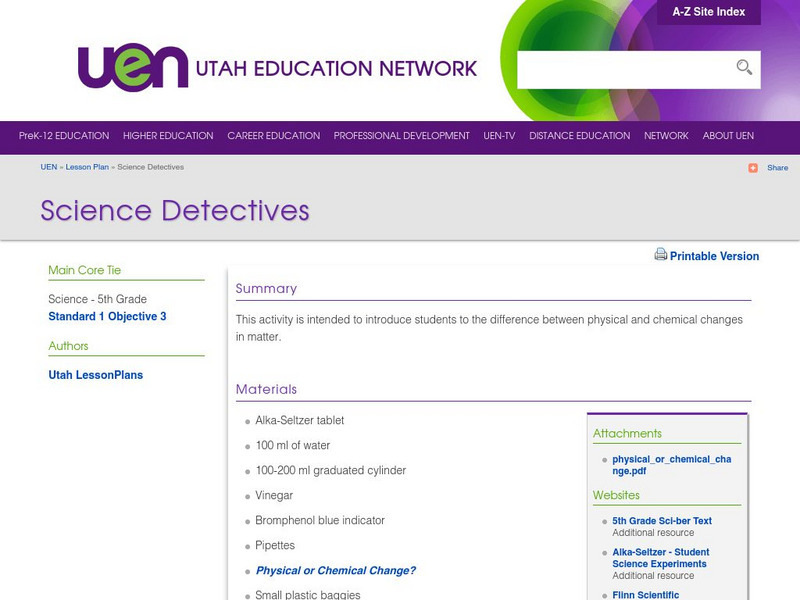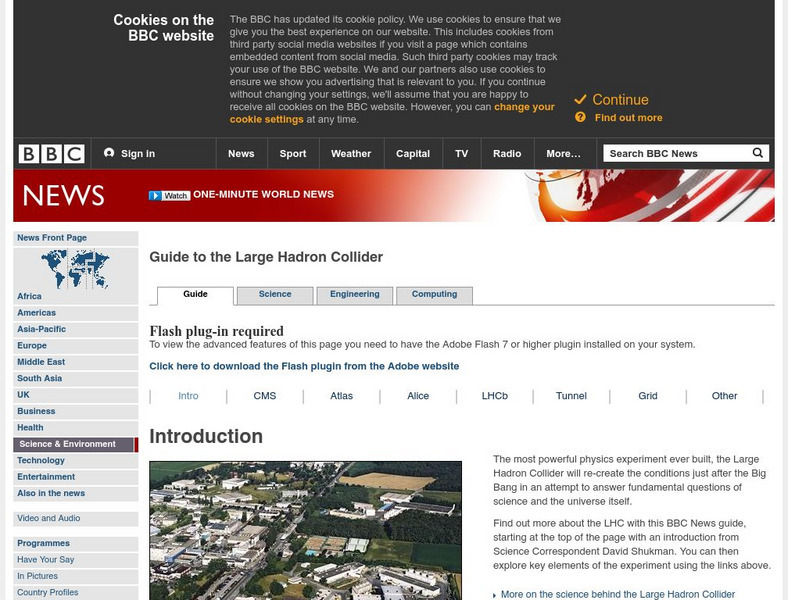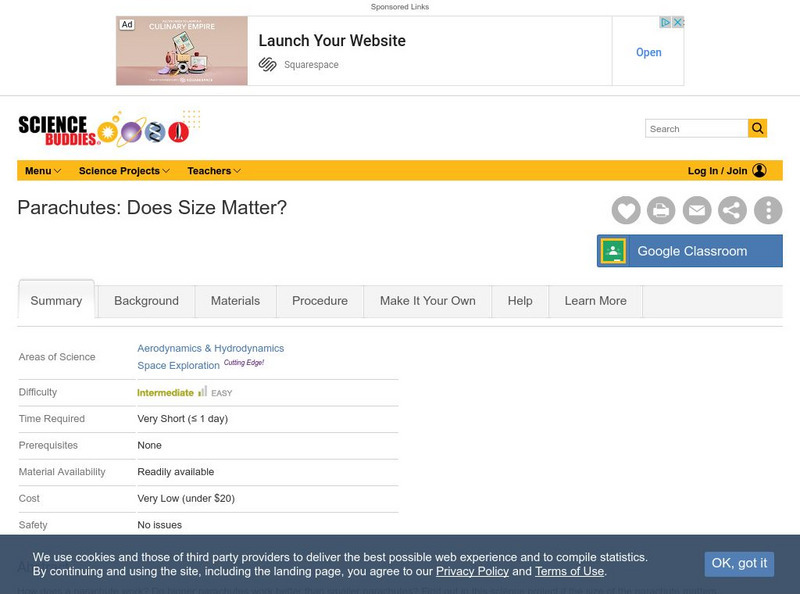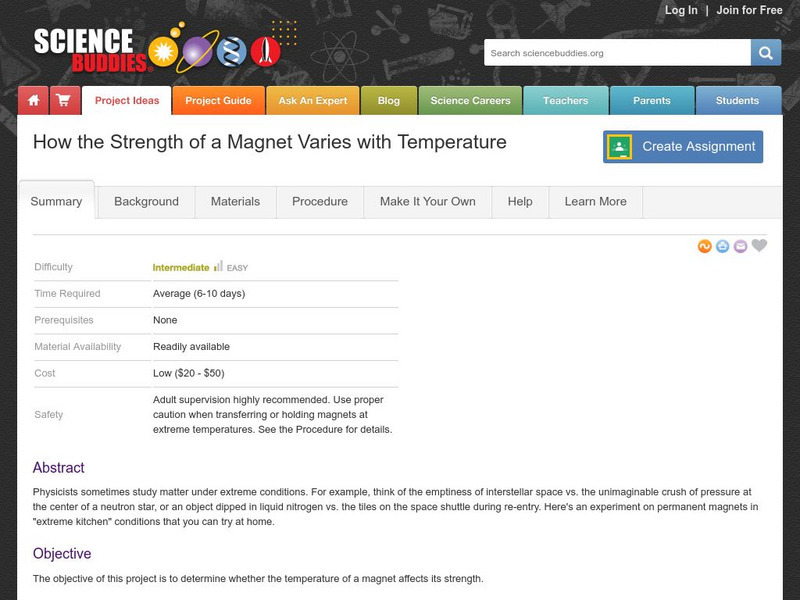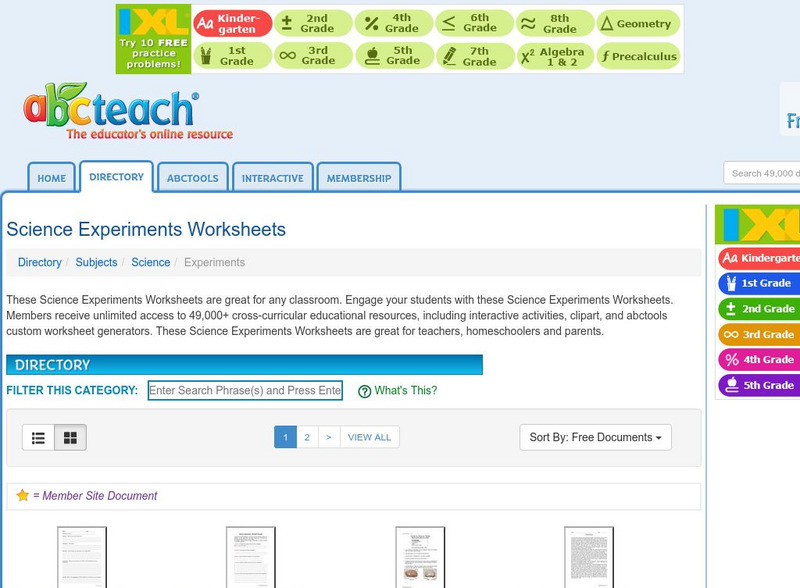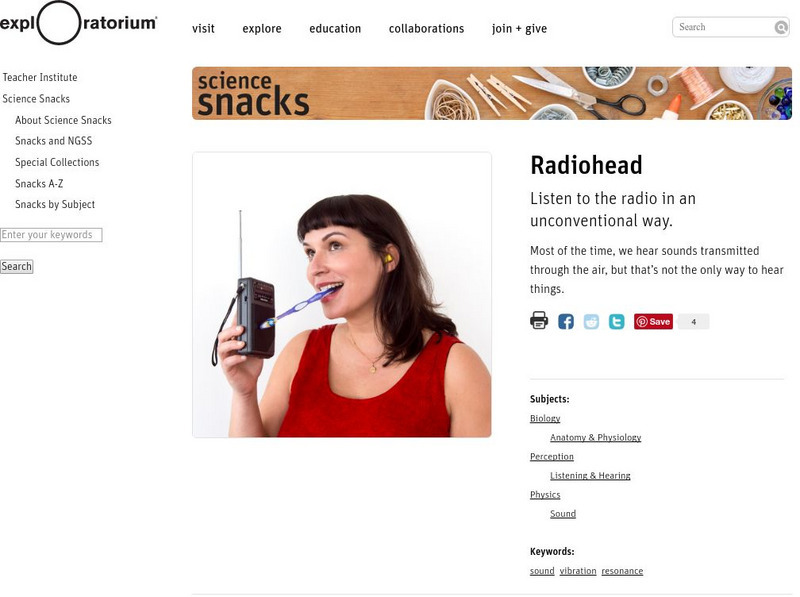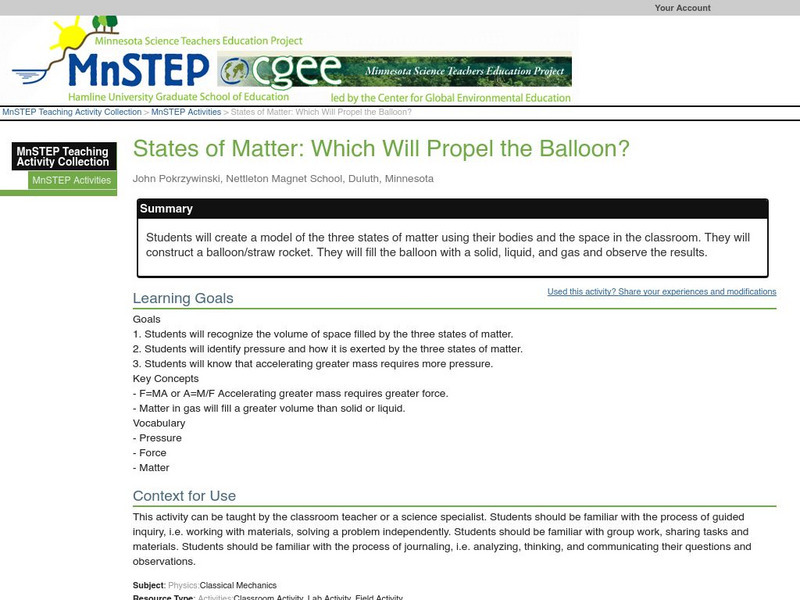Sophia Learning
Sophia: Science Tutorial: Matter
Created to teach students of the 21st century, SOPHIA is bringing matter straight to your fingertips. Become the commander of your own learning experiences as you take part in this interactive tutorial. [1:02]
Other
Science at Home: The World of Matter
Science at Home offers this site full of simple experiments that can be conducted at home. Don't miss the other sections, "forces and energy" and "electrons in action".
Utah Education Network
Uen: Science Detectives
Learners are given a scenario for this lesson where they must use investigative skills like a detective would to decide whether changes that happen to objects in the story are physical or chemical. They then conduct an experiment with...
BBC
Bbc News: 'Big Bang' Experiment Starts Well
Watch a narrated animation on the Large Hadron Collider, its experiments, structure, and computer system. Then, browse this site's sections to explore facts about and functions of CMS, ATLAS, ALICE, LHCb, the LHC Computing Grid, and the...
Science Buddies
Science Buddies: Parachutes: Does Size Matter?
Experiment with different sizes of parachutes to find out if size matters when slowing the descent of the parachute. The Science Buddies project ideas are set up consistently beginning with an abstract, objective, and introduction,...
Science Buddies
Science Buddies: What's the Fastest Way to Cool a Soda?
When you are craving an ice cold drink of soda, the last thing you want is to be stuck with a bunch of soda cans at room temperature. This fun science experiment sends you on a discovery to find the fastest way to cool soda with...
Other
University of Liverpool: Matter Initiative for Schools a Level Resources
This site features numerous interactive resources (such as simulations, interactive exercises, experiments, etc.) designed for teachers and students of the physical sciences. Some of the resources are available only on CD-ROM, but most...
Science Buddies
Science Buddies: A Matter of Degrees: Tilt of Earth's Axis Affects the Seasons
In this science fair project, use a globe and a heat lamp to investigate how the angle of the Sun affects global warming. This project includes the objective, background questions, a list of all the materials you'll need, and the...
Science Buddies
Science Buddies: Pick a Card, Any Card
No matter what your favorite card game is, we all wish we could use psychic powers to draw the card we want on our turn. You may not have psychic powers, but you might have the power of probability on your side. Do this experiment and...
Science Buddies
Science Buddies: How the Strength of a Magnet Varies With Temperature
Physicists sometimes study matter under extreme conditions. For example, think of the emptiness of interstellar space vs. the unimaginable crush of pressure at the center of a neutron star, or an object dipped in liquid nitrogen vs. the...
Scholastic
Scholastic: Dirtmeister's Science Lab: Matter
Step into Dirtmeister's Science Lab as he explores the challenge question: "How can you force a physical change in matter?" Learn about matter, make your predictions and then do the experiment.
Exploratorium
Exploratorium: Science Snacks: Hand Held Heat Engine
Can you defy the force of gravity by making liquid in a toy rise and fall without turning it over? This experiment will show you how to use hand boiler that uses temperature and pressure to move liquid into the top chamber.
Science is Fun
Fun Science: Lumpy Liquids and Squishy Solids
Investigate the properties of a strange substance which acts like a liquid and a solid. This simple experiment can be done with corn starch and water.
National Science Foundation
National Science Foundation: Astronomy and Space: Research Overview
Explore some of our most fundamental questions about space exploration with this research overview collected by scientists at the National Science Foundation. Additionally, experience deep space first-hand with telescope interactives.
Science Buddies
Science Buddies: Solubility of Proteins
Some proteins are soluble in aqueous solutions and some are not. Insoluble proteins can be a problem because the proteins can form large aggregates in solution which are difficult to purify, crystallize, and use in experiments. Compare...
Other
The Science House: Dancing Spaghetti
The chemical change of matter is illustrated in this lab experiment when spaghetti is placed in a solution of baking soda and vinegar. Watch the spaghetti rise to the surface and sink again once the gas is released.
abcteach
Abcteach: Experiments
[Free Registration/Login Required] Elementary students learning to do experiments will be able to use these ready-made worksheets for gathering data on evaporation, melting ice and others.
Alabama Learning Exchange
Alex: What's the Matter: A Sinker or Floater?
Students will explore matter that sinks or floats when submerged in water and that matter is categorized as either a sinker or a floater. Students will work actively in small, cooperative learning groups as well as gather in a whole...
NC State University
The Science House: Chromatography of Foods [Pdf]
Students will practice the technique of chromatography by separating a mixture of FD&C dyes. Questions related to the experiment along with the answers are available for use by the teacher.
Exploratorium
Exploratorium: Science Snacks: Radiohead
Try this experiment to see how sound transmits as vibrations through solid matter. You will use a toothbrush to listen to the radio.
Science Education Resource Center at Carleton College
Serc: Mn Step: States of Matter: Which Will Propel the Balloon?
For this activity, young scholars take part in a simulation of the three states of matter where they role play being molecules. They then create simple balloon rockets and must explain why a gas is the only state of matter that can cause...
Other
English Montreal School: Chemical vs. Physical Changes: Elements vs. Compounds
A laboratory experiment where students classify matter into a homogenous mixture, heterogeneous mixture, solution, or pure substance. Also students will test for physical and chemical changes.
Other
The Science House: Ziptop Bag Chemistry
In this experiment, three reactions are performed in a sealed Ziploc bag so that they can be observed. Students identify whether physical or chemical change has taken place.
TED Talks
Ted: Ted Ed: The Science of Static Electricity
We've all had the experience: you're walking across a soft carpet, you reach for the doorknob and ZAP. But what causes this trademark jolt of static electricity? Anuradha Bhagwatsheds light on the phenomenon by examining the nature of...

